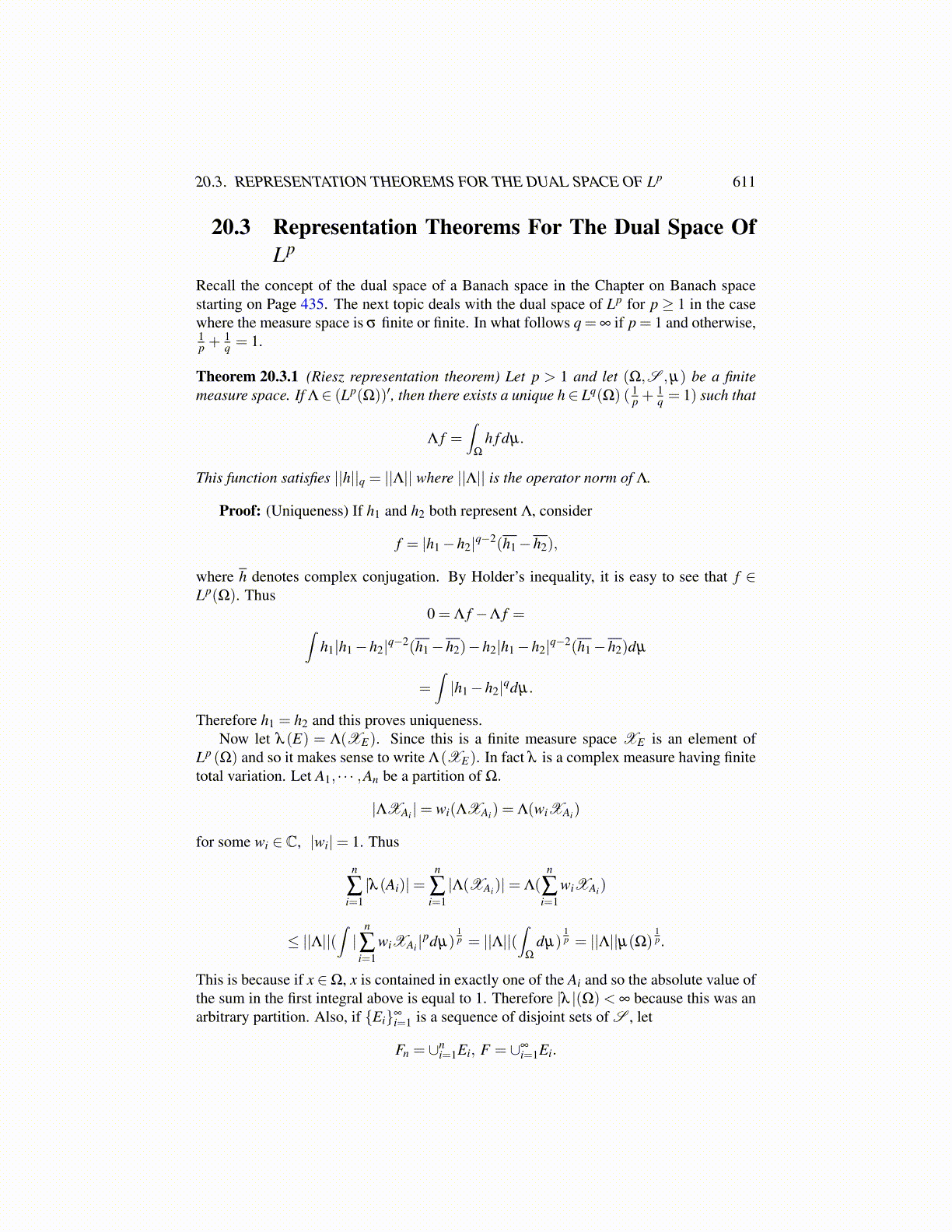
20.3. REPRESENTATION THEOREMS FOR THE DUAL SPACE OF Lp 611
20.3 Representation Theorems For The Dual Space OfLp
Recall the concept of the dual space of a Banach space in the Chapter on Banach spacestarting on Page 435. The next topic deals with the dual space of Lp for p ≥ 1 in the casewhere the measure space is σ finite or finite. In what follows q = ∞ if p = 1 and otherwise,1p +
1q = 1.
Theorem 20.3.1 (Riesz representation theorem) Let p > 1 and let (Ω,S ,µ) be a finitemeasure space. If Λ∈ (Lp(Ω))′, then there exists a unique h∈ Lq(Ω) ( 1
p +1q = 1) such that
Λ f =∫
Ω
h f dµ .
This function satisfies ||h||q = ||Λ|| where ||Λ|| is the operator norm of Λ.
Proof: (Uniqueness) If h1 and h2 both represent Λ, consider
f = |h1−h2|q−2(h1−h2),
where h denotes complex conjugation. By Holder’s inequality, it is easy to see that f ∈Lp(Ω). Thus
0 = Λ f −Λ f =∫h1|h1−h2|q−2(h1−h2)−h2|h1−h2|q−2(h1−h2)dµ
=∫|h1−h2|qdµ .
Therefore h1 = h2 and this proves uniqueness.Now let λ (E) = Λ(XE). Since this is a finite measure space XE is an element of
Lp (Ω) and so it makes sense to write Λ(XE). In fact λ is a complex measure having finitetotal variation. Let A1, · · · ,An be a partition of Ω.
|ΛXAi |= wi(ΛXAi) = Λ(wiXAi)
for some wi ∈ C, |wi|= 1. Thus
n
∑i=1|λ (Ai)|=
n
∑i=1|Λ(XAi)|= Λ(
n
∑i=1
wiXAi)
≤ ||Λ||(∫|
n
∑i=1
wiXAi |pdµ)
1p = ||Λ||(
∫Ω
dµ)1p = ||Λ||µ(Ω)
1p.
This is because if x ∈Ω, x is contained in exactly one of the Ai and so the absolute value ofthe sum in the first integral above is equal to 1. Therefore |λ |(Ω)< ∞ because this was anarbitrary partition. Also, if {Ei}∞
i=1 is a sequence of disjoint sets of S , let
Fn = ∪ni=1Ei, F = ∪∞
i=1Ei.